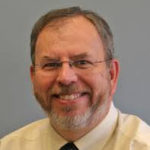This is the second in a two-part series on a partnership between the Online Learning Consortium (OLC) and WCET (the WICHE Cooperative for Educational Technologies) to obtain feedback from some of our members. Part 1 focused on the outcome of that general question at two sessions last fall. Part 2 is the results of a more targeted discussion at a recent OLC Innovate session. The participants were small groups who attended our conferences. Now we would like to open the conversation and hear from you.
Continuing the Conversation at OLC Innovate
Kathleen Ives (CEO of OLC), Karen Pedersen (Chief Knowledge Officer at OLC), and Russ Poulin (Director, Policy and Analysis at WCET) reviewed the results of your input as outlined in the Part 1 blog post. At OLC Innovate 2017 in New Orleans, we conducted a follow-up session. Based on results from the two Fall conferences, this time we focused strictly on issues surrounding accessibility. It was one area for which there was great concern expressed and for which our organizations could collaborate to better serve our members…and students.
To glean insights from the group assembled at Innovate, we asked “as a leader navigating accessibility issues on your campus, what is the one issue/challenge that keeps you up at night”? The insights were encapsulated into three primary trends focusing on students, faculty, and systems.
- Student Focus:
- Students want more media – things read to them and more students have different needs (e.g., returning veterans).
- Accessibility is also a moving target – “if you meet one student with Autism Spectrum Disorder, you have only met one”.
- A focus on building courses and/or changing existing content with accessibility in mind can help all students.
- Faculty Perspectives:
- We need faculty change agents or “champions” – work to change culture.
- Faculty sometimes aren’t sure about the research behind solutions – they need training.
- Is there an impact on innovation? – Some faculty are afraid to innovate and/or use new teaching strategies or technology because of accessibility concerns.
- System Insights:
- We need an expert to help navigate – “I don’t understand the rules and need to know more about what is required or what is enough.”
- Often accessibility offices are over-taxed.
- Administratively the institution needs to understand the consequences – but find solutions in collaboration with faculty.
We then did a deeper dive and asked “What resources do you rely on today and what resources would you like to have for tomorrow?” Excerpts from attendees on this two-part question included:
- What resources do we rely on today?
- Lean heavily on W3C Accessibility
- Consulting companies that do accessibility compliance reviews.
- Rely on accessibility offices (however, they may not have the awareness of online) who often interface with legal staff.
- Faculty taking the lead.
- Voluntary Product Accessibility Template (VPAT).
- What resources would you like to have for tomorrow?
- Rules “cheat sheet” in simple, easy-to-understand language.
- Decision making flow chart.
- Simple check for a common standard or minimum viability for accessibility – “you might lose some degree of granularity, but it might help with 80%”.
- Repository for knowledge and resource sharing – every institution is reinventing the wheel.
- Content repository of already compliant resources.
More Feedback Wanted. What’s Next?
We greatly appreciate the input from those attending the OLC Innovate session. Do these accessibility topics resonate with you? Please add comments with insights or perspectives you would like to share.
We are in talks now about next steps. We are thinking about better methods to track the “what keeps me up at night” question in the future. We are also talking about shared resources focusing on accessibility issues.

Kathleen S. Ives has worked in online technology for over 20 years and is currently the Online Learning Consortium’s Chief Executive Officer and Executive Director where she oversees the organization’s strategic direction. Additionally, she serves as faculty for the Institute for Emerging Leadership in Online Learning (sponsored by Penn State and OLC), and serves on the EdSurge Advisory Group, the Executive Strategic Council for IMS Global Learning Consortium and on the Leadership Advisory Board for the Center for Learning Innovations & Customized Knowledge Solutions (CLICKS). Formerly, Dr. Ives oversaw all forms of alternative instruction at Quinsigamond Community College in Worcester, MA (distance learning, accelerated programming). She serves as adjunct faculty for graduate and undergraduate business programs at Wentworth Institute of Technology in Boston. Dr. Ives began her career at CBS and helped to develop the service that evolved into Prodigy. She then spent fourteen years designing and implementing consumer online information services, first at AT&T and then at Verizon where she spearheaded the development of the nation’s first online Yellow Pages product, now called superpages.com. Dr. Ives has degrees in communication, communication management, and organizational leadership from the University of California at Davis, the University of Southern California, Annenberg School of Communication, and the University of Phoenix-Online, respectively.

Karen Pedersen serves as the Chief Knowledge Officer for the Online Learning Consortium (OLC). In this role, she has responsibility to gather, curate and leverage the intellectual capital created by and disseminated through the organization to create and enhance services and resources provided to the OLC community. She works in five key areas including learning innovation, quality enhancement, community engagement and development, product development leadership, as well as publications, research, and policy.
Prior to joining the Online Learning Consortium, Pedersen served as the Associate Vice President for Extended Campuses at Northern Arizona University. In this role she was responsible for leading a system-wide enrollment management transformation as well as managing marketing, technology, and academic operations. She led a network of over 35 campuses in Arizona, developing new business and market opportunities, actively collaborating with and growing community college partnerships, as well as developing scalable, integrated and lean business processes/workflows. The scope of her responsibilities included coaching and mentoring 180+ full and part-time staff members in addition to supporting over 750 faculty members.
For eleven years Pedersen served as the Vice President for Professional Studies at Southwestern College (SC). In that role she was responsible for envisioning and building an online program from the ground up and launching over 25 innovative online programs. While there Pedersen expanded military partnerships and engaged in strategic infrastructure projects while successfully positioning her institution in an enrollment growth trajectory. SC participated in the Academic Quality Improvement Program (AQIP) through its regional accreditor (The Higher Learning Commission) and Pedersen participated in two strategy forums during her tenure. In addition, she served as an evaluator with the Kansas Award for Excellence and utilized the Baldrige Criteria for Performance Excellence in her operations.
Pedersen also held the academic associate and dean roles at Upper Iowa University’s Extended University for four years. In these roles she was responsible for curriculum development, enhancing learner success initiatives, as well as faculty hiring, training, and evaluation. She also built the foundations for an online operation and traveled internationally to develop partnerships in Singapore, Hong Kong, and Malaysia.
Prior to starting her administrative career, Pedersen served as a faculty member at the University of Nebraska at Kearney. She holds bachelor of science and master of science degrees from the University of Nebraska-Lincoln and a doctor of philosophy degree from Oklahoma State University. Pedersen has numerous international leadership experiences having worked collaboratively with the Indonesian National Police and the US government to provide professional expertise for a major distance education initiative as well as serving as an international keynote speaker.

Russ Poulin organizes WCET’s national policy and research activities, edits WCET’s Frontiers blog, coordinates WCET’s research efforts, and works on elearning consortia issues. He represented the distance education community in the U.S. Department of Education’s 2014 Negotiated Rulemaking process. Previously, he coordinated distance education activities for the North Dakota University System. He holds a Bachelor’s degree from the University of Colorado Denver and a Master’s from the University of Northern Colorado. Russ enjoys going to the films with his wife, Laurie.

